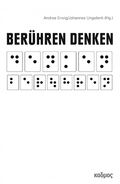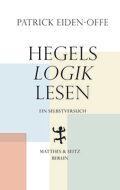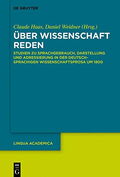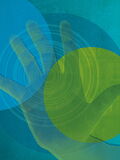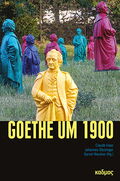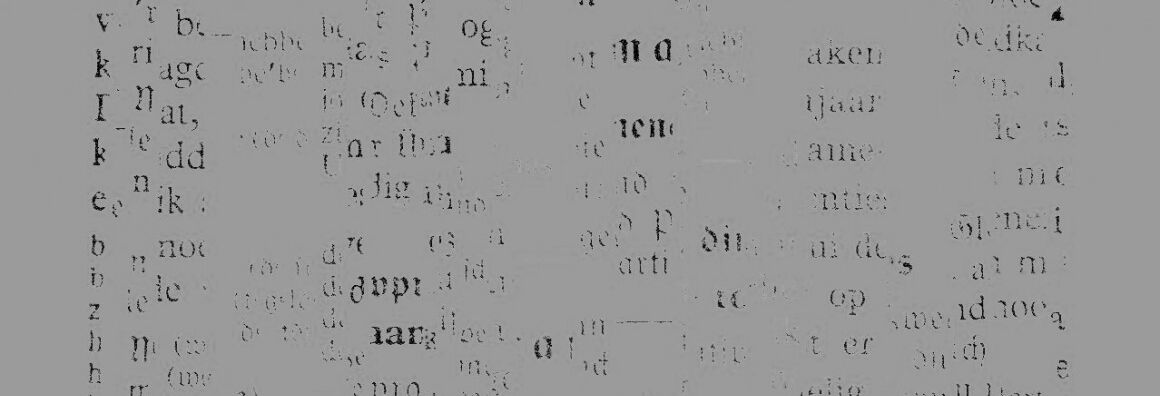
The Formation of Theory and the Critique of ‘Wissenschaft’ in the Early Twentieth Century
Theory has often been associated with antiscientific or anti-academic sentiments. The prehistory of what has come to be referred to as ‘theory’ and specifically the relationship between theory and the so-called ‘Krise der Wissenschaft’ (“crisis of science”) around 1900 were at the center of this research project. A particular focus was placed on theory’s affinity with literature since both are dealing with phenomena that cannot be grasped discursively or conceptually. The project examined rhetorical forms, modes of representation, and media formats that authors deployed in canonical styles of thought in order to stabilize their individual or group positions. This line of inquiry also included examining ‘nonscientific’ authorities like charismatic teachers and prophets as well as addressing figures of thought that were not traditionally part of accepted academic discourse like the concepts of the Tragic or the Demonic. The main research topics of the project were the George circle, the work of Georg Lukács, and the semantics of touch (as opposed to visuality) in theoretical texts of the early 20th century.
Ultimately, the project investigated the ways in which ‘theory’ addresses its audience, or conceives (immanent or imaginary) addressees of theoretical, essayistic, and philosophical speech. Who does theory address and where is the reader led by theoretical texts—and by which means? Of particular interest was the tension between emancipatory and cultic strategies and the immanent social models of theory.
Publications
Berühren Denken
Hegels ›Logik‹ lesen
Ein Selbstversuch
Über Wissenschaft reden
Studien zu Sprachgebrauch, Darstellung und Adressierung in der deutschsprachigen Wissenschaftsprosa um 1800
Berühren. Relationen des Taktilen in Literatur, Philosophie und Theater
Goethe um 1900
Patrick Eiden-Offe
- “Eigenes” und “Lebendiges”: Hölderlins “deutscher Gesang” um 1800, in: Claude Haas, Daniel Weidner (eds.): Über Wissenschaft reden. Studien zu Sprachgebrauch, Darstellung und Adressierung in der deutschsprachigen Wissenschaftsprosa um 1800. Berlin: de Gruyter 2020, 235–263
- Revolution oder Reform? Versuch einer Standortbestimmung, 50 oder 100 Jahre danach, in: Berliner Theologische Zeitschrift 2 (2019), 164–179
- Umgang mit Kritischer Theorie. Christa Bürgers und Peter Bürgers Weg durch die Kritische Theorie (und zurück), in: Tanja Angela Kunz (ed.): Lebensform Kritik. Zu Theorie und Praxis von Christa Bürger und Peter Bürger. Göttingen: Wallstein 2018, 31–44
- Typologie und Krise: Fichte in Lukács, in: Rüdiger Dannemann, Maud Meyzaud, Philipp Weber (eds.): Hundert Jahre “transzendentale Obdachlosigkeit.” Georg Lukács' “Theorie des Romans” neu gelesen. Bielefeld: Aisthesis 2018, 211–228
- Auf dem Weg zur reinen Kritik. Die Junghegelianer als Bewegung, in: Mittelweg 36.4–5 (2017), 47–68
Andrea Erwig
- “Das Lied hat ... Hand und Fuß.” Heines taktile Politik, in: Arcadia, special issue: Literature and the Politics of Touch (forthcoming)
- “Fernnähe.” Rilkes Poetik und Sozialität des Taktilen – mit Exkursen zu Simmel und Plessner, in: Sandra Fluhrer, Alexander Waszynski (eds.): Tangieren. Szenen des Berührens. Baden-Baden: Rombach 2020, 45–68
- Berühren. Relationen des Taktilen in Literatur, Philosophie und Theater, in: Komparatistik online 1 (2019) = Berühren. Relationen des Taktilen in Literatur, Philosophie und Theater, ed. by Andrea Erwig and Sandra Fluhrer (with Sandra Fluhrer)
- “wie Menschen, die uns ergreifen und uns entgleiten.” Berührungszonen von Theorie und Literatur in frühen Texten Robert Musil, in: Sprachkunst 1 (2019), special issue: Lesen denken. Lektüre und/als Theorie, ed. by Caroline Bohn, 61–94
Claude Haas
- Fröhliche Wissenschaft – traurige Theorie? Lose Bemerkungen zu einem spannungsreichen Verhältnis, in: Bericht über das Forschungsjahr 2016, ed. by Vorstand Geisteswissenschaftliche Zentren Berlin e.V. 2017, 61–68, as well as on the ZfL Blog, 5 Feb 2018
- Die Sphinx heim nach Berlin holen: Hegels Antike(n), in: Friedericke Krippner, Andrea Polaschegg, Julia Stenzel (eds.): Die andere Antike. Altertumsfigurationen auf der Bühne des 19. Jahrhunderts. München: Wilhelm Fink 2018, 25–50
- “Erholung und Ermunterung.” Goethes Harmlosigkeit seit 1900, in: Claude Haas, Johannes Steizinger, Daniel Weidner (eds.): Goethe um 1900. Berlin: Kulturverlag Kadmos 2017, 202–227
- Hölderlin contra Goethe. Gemeinschaft und Geschichte in Max Kommerells “Der Dichter als Führer in der deutschen Klassik,” in: Zeitschrift für Germanistik. Neue Folge XXVII.1 (2017), 149–162
- “Was Goethe (...) sagt, trifft wenig zu.” Heinrich Düntzer und die Säkularisierung des philologischen Kommentars, in: Yael Almog, Caroline Sauter, Daniel Weidner (eds.): Kommentar und Säkularisierung in der Moderne. Vom Umgang mit heiligen und kanonischen Texten. München: Wilhelm Fink 2017, 109–122
- Heiland oder Führer? Der Dichter als Kulturheros in der Literaturwissenschaft des George-Kreises, in: Zaal Andronikashvili, Giorgi Maisuradze, Matthias Schwartz, Franziska Thun-Hohenstein (eds.): Kulturheros. Genealogien, Konstellationen, Praktiken. Berlin: Kulturverlag Kadmos 2017, 537–566
Events
Patrick Eiden-Offe: Klassenbewusstsein oder Klassismus? Vorschläge für eine Debattenkorrektur
Literaturforum im Brecht-Haus, Chausseestr. 125, 10115 Berlin
Andrea Erwig: Poetiken des Wartens
Università degli Studi di Milano, AULA 113, Via Festa del Perdono 7, 20122 Milano
Andrea Erwig: »Das eine weiß ich bestimmt: wir warten! Das ist unser Wert.« Robert Walsers Heldentum
Albert-Ludwigs-Universität Freiburg, Hebelstr. 25, 79104 Freiburg
Patrick Eiden-Offe: Die Erfindung von Theorie fürs 20. Jahrhundert. Georg Lukács und die »Theorie des Romans«
Humboldt-Universität zu Berlin, Unter den Linden 6, 10117 Berlin, Hauptgebäude, Hörsaal 2002
Patrick Eiden-Offe: Peripherie und Zentrum in der Literatur- und Sozialgeschichte des 19. Jahrhunderts. Ernst Willkomm und Immanuel Wallerstein im Gespräch
Masaryk-Universität Brno, Arne Nováka 1, Raum D21
Patrick Eiden-Offe: Wissenschaft, Theorie und Ironie: Lukács' Entscheidungen
ELTE BTK Múzeum korút 4/A „Kari Tanácsterem” 1088 Budapest (Ungarn)
Claude Haas: Gebannte décadence? Stefan Georges Baudelaire-Übersetzungen
Universität Zürich, Deutsches Seminar, Schönberggasse, 98001 Zürich (CH)
Andrea Erwig: Warten. Denken im Zwischenraum in Literatur und Theorie des frühen 20. Jahrhunderts
Freie Universität Berlin, Holzlaube, Fabeckstraße 23-25, 14195 Berlin, 2. 2058/59
Patrick Eiden-Offe: Gibt es eine Poesie der Abstiegsgesellschaft? Literatur, Theorie, Film
Alfried Krupp Wissenschaftskolleg, Martin-Luther-Straße 14, 17489 Greifswald
Patrick Eiden-Offe: Was heißt und zu welchem Ende studiert man Theoriegeschichte?
Universität Duisburg-Essen, Forsthausweg 2, 47057 Duisburg, Raum V13 S00 D50
Patrick Eiden-Offe: Klassenkampf in der Theorie. Klassentheorie und Klassenpolitik bei Marx
Albert-Ludwigs-Universität Freiburg, Institut für Soziologie, Rempartstr. 15, 79098 Freiburg im Breisgau
Die MRX-Maschine. Marx ausbuddeln, Proletariat einrühren, Geschlecht aufmischen...
k-fetisch, Wildenbruchstraße 86, 12045 Berlin
Claude Haas: »Keine Zeit, Zeit zu haben.« Überlegungen zur politischen Dramaturgie Jean Racines
Universität Zürich, Abteilung für Allgemeine und Vergleichende Literaturwissenschaft (AVL), Plattenstrasse 43, 8032 Zürich (CH)
Claude Haas: »Der König wartet, und es harrt das Volk«. Überlegungen zur Dramaturgie des Volks in der ›klassischen‹ Tragödie
Universität Konstanz, Universitätsstraße 10, 78464 Konstanz, Raum G 306
